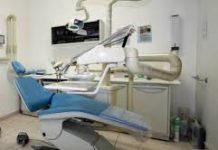Orthodontic treatment. Teeth are moving.
With age or for other reasons, adults might feel as if their teeth are loose or as if they are shifting; this condition is very common and not pleasant at all since strong and healthy teeth are one of the most important signs of overall health.
Loose tooth in adults.
We use teeth to eat, to crunch hard foods, sometimes we use them as tools; anyway, we need strong teeth. Every time we feel our teeth are moving or shifting, the first thing to do is going to the dentist in order to check the situation; after that, our dentist will be able to provide us with the suitable treatment.
Teeth might move or shift for different reasons: first of all, crowded teeth are more prone to move since they are under the constant pressure of the other teeth; secondly, the age is the main factor for teeth to move, since year after year the ligaments and bone around the teeth weaken.
Loose tooth treatment.
These conditions can get worst in cases of pregnancy or osteoporosis; high levels of hormones during pregnancy can affect ligaments or bones and thus causing tooth mobility, but this is only a temporary situation. Instead, osteoporosis is a more severe condition that can occur both in men and women: this pathology lessens the density of bones, so the bones around the teeth might be more prone to reduce or to fracture.
It is always important for patients to talk to their dentist if they are affected by osteoporosis.
Another cause of tooth mobility might be periodontal diseases, that hit the gums: usually, it happens that when people don’t follow a proper daily oral care, the bacterial plaque gather around the tooth and the gum line and it develops into tartar.
If the bacterial toxins are allowed to proliferate, the tissues become inflamed, they begin to bleed and if the disease is not treated, it might lead to the loss of the tooth.
Traumas are a common factor in tooth moving, and every injury to the mouth can make a tooth to move, but oral trauma might be also caused by grinding teeth during the night; a tooth might shift also because of an extraction, that is not filled and leaves a gap in between two teeth.
Teeth moving. Splinting.
All these conditions have a solution, that only the dentist can provide: there is a treatment called splinting used to stabilise teeth; in cases of bruxism there is special mouth guard to wear at night, during sleep. Periodontal diseases can be treated in different ways depending on the seriousness of the ill, and one or more missing teeth can be replaced with dental implants, bridges or denture to guarantee the balance among teeth.





